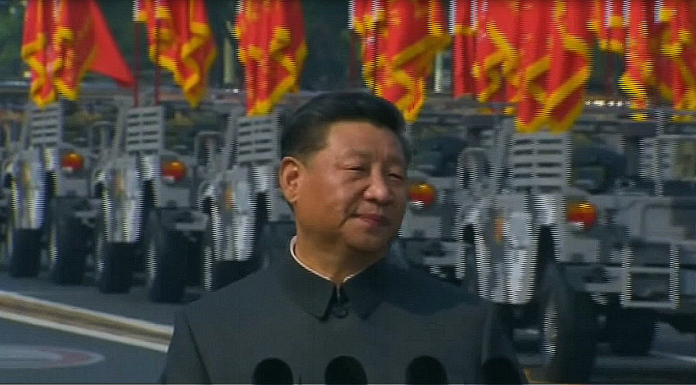As Democrat Joe Biden prepares to enter the United States into the energy-killing Paris Climate Agreement, China distracts the world with its false environmentalism while paving the way to produce and burn more coal.
Chinese Communist Party General Secretary Xi Jinping said that China would reach a carbon-neutral energy infrastructure by 2060, but his words do not align with the nation’s actions, The Japan Times reported.
The Paris Climate Accord asks nations to reach net-zero carbon emissions by 2050, but it does not bind them.
If installed, Biden may attempt to destroy coal, natural gas and nuclear energy in pursuit of a solar-, wind-, and water-powered America.
Jinping, however, does not seem to have any such intention, perhaps because he realizes the impossibility of providing carbon-neutral energy to 1.4 billion Chinese in 40 years.
Both the Draworld Environment Research Center and the Centre for Research on Energy and Clean Air have asserted that China cannot become carbon-neutral by 2060 if it continues to build new coal plants, even in the short-term.
But that’s exactly what the CCP intends to do.
The nation’s socialist utility companies are expanding their coal-burning power plants by 10 percent to prepare for an increase in coal usage.
China would have to reduce its coal consumption to 680 gigawatts by 2030 to reach its goal by 2060, according to the environmental research centers. Instead, the nation is planning a 1,300 gigawatt expansion.
China completed the Haoji Railway line, which will have the capacity to ship 200 tons of coal more than 1,200 miles from central Asia to the Pacific coast, in 2019.
The increase in coal production and consumption will come with technological advancements that will turn mining into a white-collar job.
“People no longer want to work in a mine, especially young people with college degrees,” said Han Weihai, who manages Huawei’s mine projects in Shanxi.
Many American politicians, including Biden, trust China’s 40-year plan to reduce carbon emissions, despite the nation’s actions to the contrary.
The idea behind this belief is that China must complete its industrialization, amass enough wealth and technology, and create enough alternative jobs to make viable the turn to nuclear and solar energy. Tens of millions of Chinese currently rely on the coal industry for their livelihood.
“The industry will cut jobs, but it should be slow and gradual,” said Wang Haigang, the deputy general manager of Xinyuan, a mine that plans to reduce employment from 3,000 in 2012 to 1,000 in 2025. “It may take a long time, but we’re aiming for a future in which no workers need to work underground.”
Reductions in coal production, and thus lost jobs in coal mining, could cause unrest in a nation whose workers depend heavily on the industry.
“They had no other skills, no education, and no preparation. If the mine that they worked for all their life won’t hire them, how could they expect other companies to?” said Zhu Yu, who worked at the Haizhou mine in Fuxin for eight years before it shut down.
“We sacrificed our health and our youth for a job that’s supposed to last our whole lives,” Zhu said, “but suddenly we’re told the promise is no longer valid?”
The CCP, which relies on force and security to keep its subjects compliant, cannot risk economic upheaval, which suggests that leadership’s high-minded environmentalist rhetoric may not match its true intentions.

